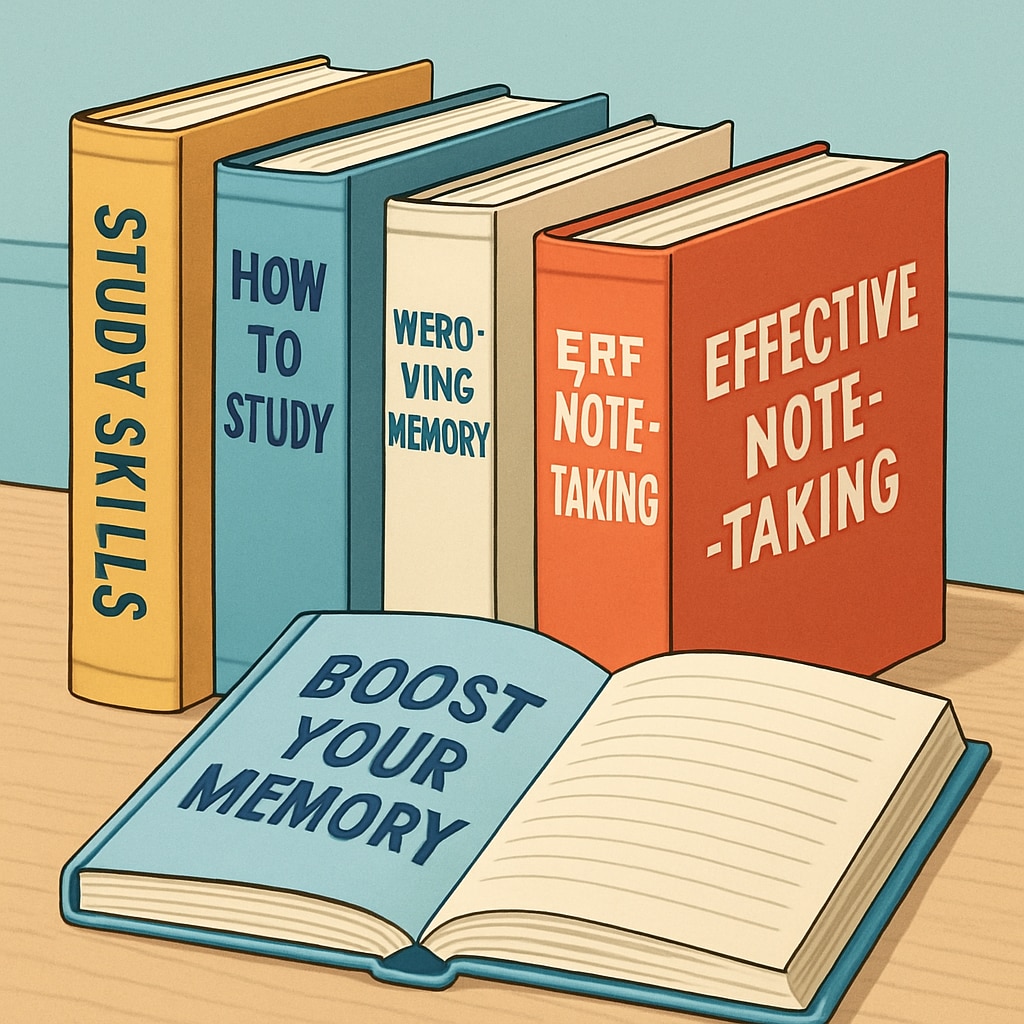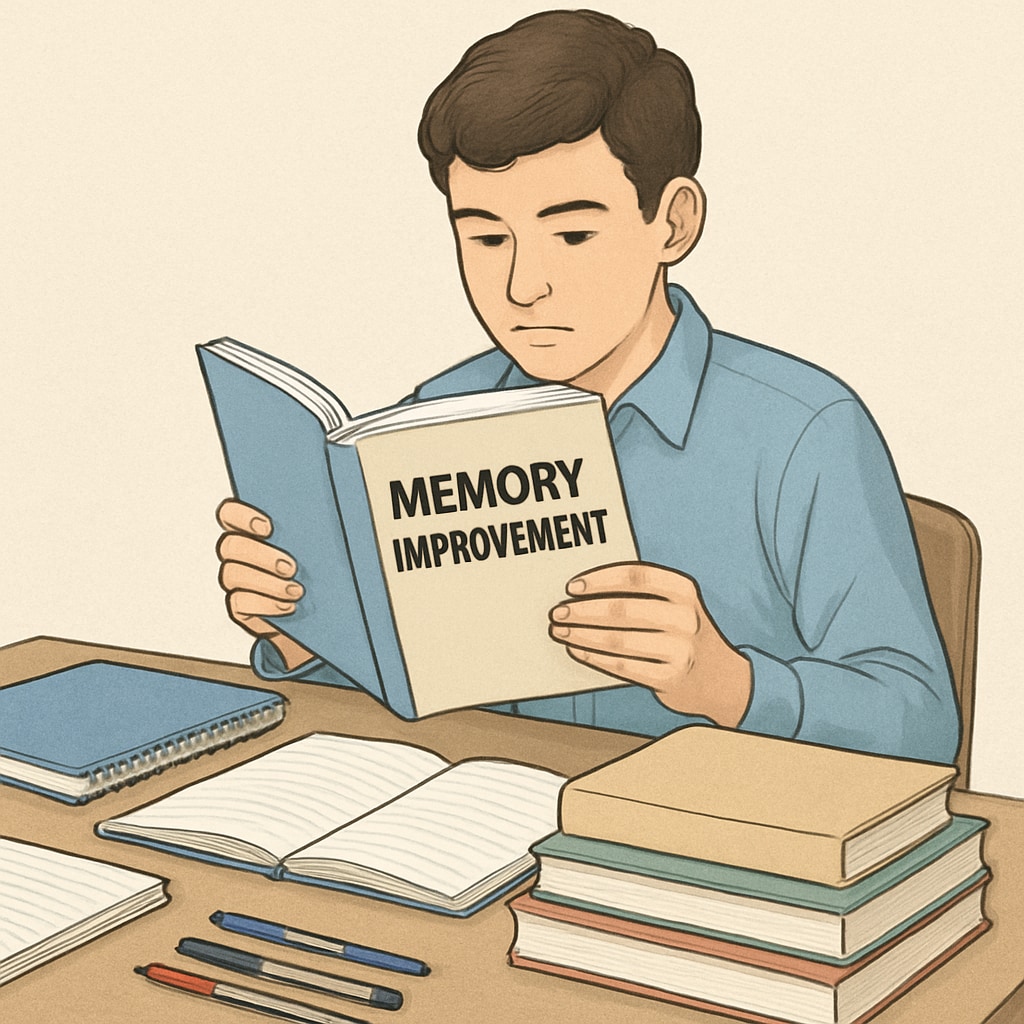For teens seeking to excel academically, mastering effective study techniques and memory retention methods is vital. This guide highlights six essential books that provide actionable strategies and insights to help students learn smarter, not harder. These resources delve into cognitive science, practical memory tips, and study habits that are both efficient and sustainable. Whether you’re a middle schooler preparing for exams or a high school student aiming for academic excellence, these book recommendations will transform your learning approach.
Why Study Techniques and Memory Retention Matter
Before diving into the book recommendations, it’s important to understand the significance of effective study methods and memory retention. Traditional rote memorization methods often fail to produce long-term results, leaving students frustrated. By exploring scientifically-backed techniques, teens can not only retain information longer but also reduce the time spent studying. These methods enable students to approach learning with confidence and clarity, paving the way for both academic and personal growth.
Top 6 Books on Study Techniques and Memory Retention
Here are six highly recommended books that cater specifically to teens and their unique learning needs:
- “Make It Stick: The Science of Successful Learning” by Peter C. Brown
This book offers insights into the science of learning, debunking common myths about studying. It provides practical advice on how to retain information effectively, making it an indispensable guide for any student.
- “The Teenage Brain: A Neuroscientist’s Survival Guide to Raising Adolescents and Young Adults” by Frances E. Jensen
Although aimed at parents, this book is a must-read for teens as well. It explains how the adolescent brain functions and provides tips on optimizing learning during these formative years.
- “A Mind for Numbers: How to Excel at Math and Science (Even If You Flunked Algebra)” by Barbara Oakley
Perfect for math and science enthusiasts, this book teaches students how to overcome learning blocks and grasp complex concepts with ease. The techniques are applicable across various subjects too.
- “Moonwalking with Einstein: The Art and Science of Remembering Everything” by Joshua Foer
This engaging narrative explores memory champions and their techniques, offering practical memory hacks that teens can use in their studies.
- “How to Become a Straight-A Student” by Cal Newport
Targeting high school and college students, this book emphasizes time management, focused studying, and balancing academics with extracurricular activities.
- “Ultralearning: Master Hard Skills, Outsmart the Competition, and Accelerate Your Career” by Scott H. Young
Though more advanced, this book introduces the concept of ultralearning—a strategy for acquiring skills quickly and effectively. Teens can adapt its principles to their academic pursuits.

How to Choose the Right Book for You
With so many excellent options, selecting the right book may feel overwhelming. Here are a few tips to guide your decision:
- Identify Your Challenges: Are you struggling with time management, focus, or subject-specific difficulties? Choose a book that directly addresses your needs.
- Consider Your Learning Style: Some books are narrative-driven, while others are more instructional. Pick one that resonates with how you prefer to learn.
- Start Small: If you’re new to learning strategies, begin with a more straightforward book like “How to Become a Straight-A Student” before diving into advanced concepts.
Additional Resources and Tips
In addition to these books, teens can explore online resources, such as reputable articles on cognitive science and memory techniques. For example, the Wikipedia page on cognitive psychology provides foundational insights. Additionally, platforms like Britannica’s memory psychology section offer in-depth explanations of how memory works.

By combining these books with consistent practice, teens can develop study habits that will serve them well throughout their academic journey and beyond. Remember, effective learning is not just about putting in hours of study but also about working smarter with proven techniques.
Readability guidance: This article presents information in clear, concise paragraphs with lists to summarize points. Overuse of long sentences is avoided, and transition words ensure smooth reading. {{IMAGE:…}} placeholders correspond with the images described below.


